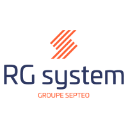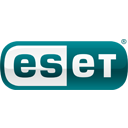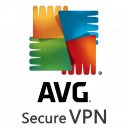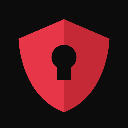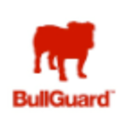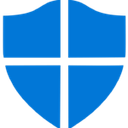Antivirus software: purchase guide
What is An Antivirus?
Definition
Cybersecurity is a fundamental issue to be taken into account in building a professional IT environment. Many software programs such as BitDefender or AltoSpam protect you against malware:
- Spam (junk mail),
- Viruses received as email attachments
- Other attempted attacks (spyware, trojan, ransomware etc.)
The computer program presented in the form of antivirus software provides effective protection for your system (computer, smartphone, tablet).
How it Works
The antivirus software performs a regular, automatic file and hard disk scan to detect, remove or troubleshoot malicious files.
Anti-virus software is never 100% reliable, but it is a barrier to protection against attacks. It should be noted that a virus can cause the loss of all information on your computer and spread to all files on your computer network.
The installation of computer software reduces risks. There are various antivirus software solutions from free antivirus to paid solutions.
A dashboard allows you to view the results of the analyses: the number of infected files for example.
What Are the Main Features of Antivirus Software?
Hard Disk Drive and Personal Data Protection
Virus designers are constantly adapting to the evolution of modern computing, which makes it almost impossible for a company whose security is not its business to protect itself 100% from the risk of attacks. Anti-virus software protects you by:
- Analyzing the files and directories contained on your computer or hard disk
- Scanning specific files contained on a hard disk, USB key, CD-Rom or DVD-Rom
- Deleting or quarrying malicious files and allowing you to choose the action you want to apply to the discarded file
- Detecting a large part of malicious viruses and can handle the most common viruses
Antivirus software continuously updates its database to ensure the security of your company. An attack on your servers or on employees' workstations can be dramatic and impact the very survival of your company.
Antivirus software allows you to control all servers, devices, and computers in a company. In the event of an attempted intrusion, the administrator is immediately informed and can react as quickly as possible to protect the company.
Preventive functions such as blocking high-risk websites, controlling software installations and much more help to avoid bad practices that can lead to potential viruses.
Email Security Gateway
Secure messaging tools are positioned as gateways between incoming emails and users' emails:
- They protect messengers against viruses, ransomwares, phishing, etc.
- They filter emails against spam and dangerous attachments
- They protect servers against DDoS attacks and others who could use them as a gateway.
White and black lists are used to control email senders. An issuer in any list will need to complete a Captcha to ensure that it is not a SPAM.
Some companies offer a data hosting service to ensure physical and IT security.
Technical Support in Case of an Attack
In the event of a malfunction or an attacked computer system, contact the service of the antivirus software company. Most vendors provide troubleshooting by instant messaging, email or directly by phone.
You also have the option of restoring your system that is frozen by a virus or spyware.
Who Uses Antivirus Software?
Whether you are a self-employed entrepreneur, a very small business, an SME, an IT company or a large group, antivirus tools are essential to protect, at a minimum, the workstation of each employee.
They are used directly by employees who install and update antivirus software on their computers, or by IT departments who ensure data integrity.
Nevertheless, digital companies (marketplaces, digital platforms, etc.) are the main targets of antivirus vendors. It is essential for them to have a functional platform.
Why Use Antivirus Software in your Company?
The installation of anti-spyware protection software is essential for your company. Imagine the time you would waste if your computer system was attacked or totally inaccessible if it was attacked by malware. However, they have some disadvantages.
Advantages
- Surfing the Internet without any risk (or almost no risk). It enhances your Internet security to prevent viruses such as Trojans from integrating into your files via your browser (Internet Explorer for example)
- Your computer is no longer hindered by the slowdowns that malicious files can cause
- Non-disclosure of your passwords and business information
- You no longer transmit infected files to your customers and employees
- Investing in paid software is not a very significant cost. There are many software solutions for IT security such as Avira, Eset, Symantec, Kaspersky, Avast Antivirus, Bitdefender, Mcafee, Microsoft Security Essentials, Panda Security or Norton Antivirus. You can find software solutions at various prices to adapt the choice of the best antivirus in comparison to your financial capacity
Disadvantages
- Anti-virus software protects very well against known malware, but has difficulty protecting against new attacks
- Risk 0 does not exist, you can be attacked and lose files
- Not all solutions are compatible with all operating systems
Free vs. Paid Antivirus Software
The easiest solution would be to choose a free antivirus software so as not to generate additional costs on your structure's budget. However, free security software is very limited. Very often, they are software developed by publishers offering the same software in a more elaborate version.
Paid or free, it analyzes the signature of files and detects the characters specific to each virus. Finally, it analyses the behavior of your computer system (heuristic method).
Try the free security software demo to test the solution before investing in the paid version to further protect your data.



